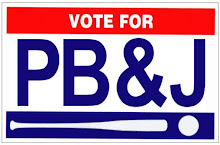Selection of a vice-president is a laborious process that requires absolute secrecy to be effective. If ones selection leaks to the press before necessary, the process could be sunk by a round of bad press stories. Therefore the helpful adage is: those who know don’t talk and those who talk don’t know. Recently, vice-presidential hopeful Governor Tim Kaine (D-VA) has been talking quite a bit. What does this mean to the process?
Despite press speculation, the vice presidential process must be coming to a close shortly. The Conventions are a month away and offer the deadline for selecting a VP. As the press gets antsy, they will begin to run cover-stories on every potential VP selection for both candidates. This could be disastrous for a campaign, because you want to control your VP candidate’s biographical story (Campaign 101: if you don’t control your message then you don’t control the outcome). If the press beats you to the punch through a tell-all biography then you may never be able to define your candidate. How then do you keep the press from running said stories? Give them someone to feast upon. Enter Tim Kaine.
The Democratic Governor of Virginia would be a great choice for Vice-President.
Here is a theory: Tim Kaine is being used by the Obama campaign as a decoy candidate. If the press continues to cover Kaine with as much frequency as they are then the Obama campaign is spared the potentially damaging press stories on other candidates under consideration. This allows the Obama camp breathing room to vet their short list. Kaine can still benefit from this role as his national profile is rising dramatically. The press is running stories on his record and what he would bring to the ticket. This could possibly even set up Kaine’s own run at the presidency in the future.
This is not necessarily the case, rather, Kaine may have stepped into this role voluntarily. This is unlikely because Kaine served as a National Co-Chairman of the Obama campaign during the primaries. He knows what he is doing (doesn't he?) Regardless, the Obama camp can thank him for this service while they do background checks on Gov. Kathleen Sibelius (KS), Senator Evan Bayh (IN), and other candidates. I do believe that Kaine ruined his own chance by speaking out, even as he is raising his profile.
As Kaine does the speaking circuit, the Obama campaign is running at submarine depth to avoid detection. Regardless of whom, we will know of Obama’s (and McCain’s) decision – the biggest of their careers - in the next couple of weeks.
- Wyatt

